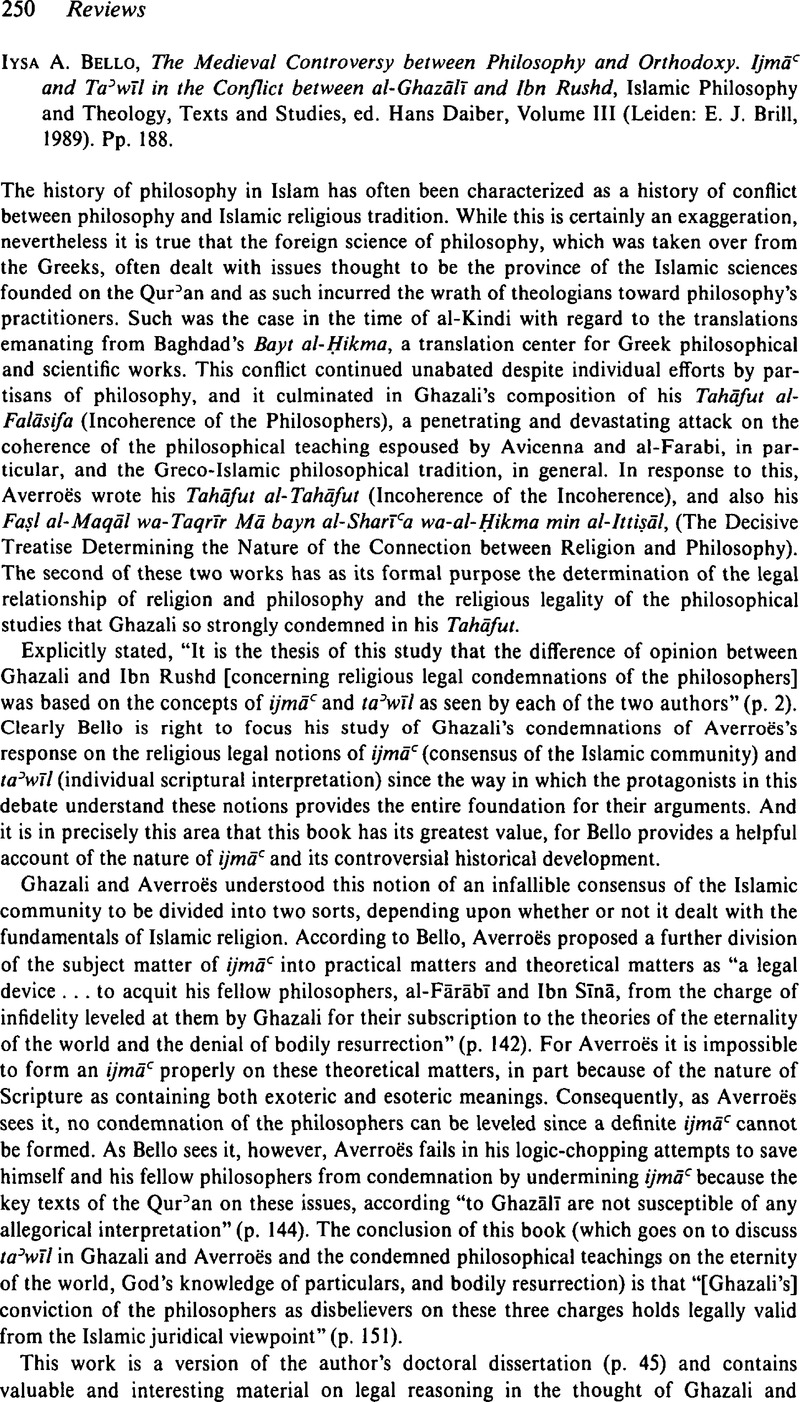No CrossRef data available.
Published online by Cambridge University Press: 29 January 2009

1 See S. Kogan, Barry, Averroës and the Metaphysics of Causation (Albany, N.Y., 1985),Google Scholar chap. 5, for a penetrating study of eternal divine creation, divine will, and divine causal knowledge. For an equally penetrating discussion of the Decisive Treatise and its structure, purpose and argument, see Mahdi, Muhsin, “Remarks on Averroës' Decisive Treatise,” in Michael, E. Marmura, ed., Islamic Theology and Philosophy, Studies in Honor of George F. Hourani (Albany, N.Y., 1984), pp. 188–202, 305–8. Bello lists in his bibliography both Mahdi's article and Kogan's dissertation; the latter was the basis for Averroës and the Metaphysics of Causation.Google Scholar
2 Mahdi, “Remarks,” p. 201.
3 Kogan, Cf., Averroës and the Metaphysics of Causation, pp. 221–29.Google Scholar